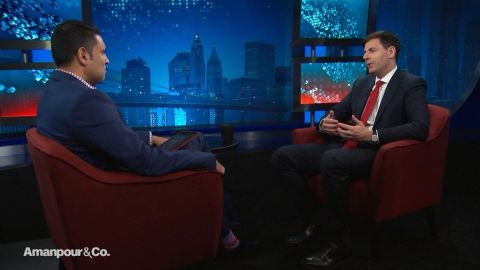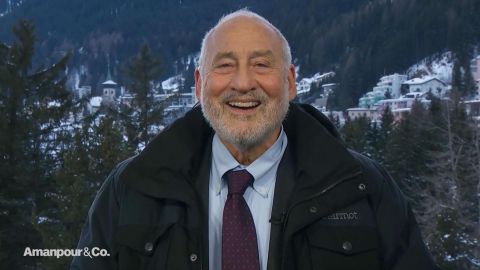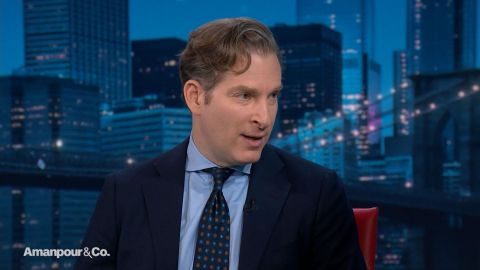Read Transcript EXPAND
CHRISTIANE AMANPOUR: Just analyze for me, you know, what the president’s been saying on this and what the opportunities could be.
STIEGLITZ: Oh, there are enormous opportunities. In fact, the countries like the United States that are not doing this much to create a green economy are going to be left behind. Uh, the green economy is a spurring innovation. Uh, it’s creating new jobs, far more jobs. And for instance, installing, uh, a solar panel was then in the coal industries, there are better paying jobs, uh, their jobs without the health hazards of the black lung disease. So except actually a more dynamic, uh, economy. We’re talking about economy of the future, not the economy of the past. The reality is there is we’re going to all have to move towards climate change and countries like the United States, that leg will be behind in this new, uh, economic revolution.
AMANPOUR: I just want to read what you’ve written about it. Um, just, just last year, last summer you said when the U S was attacked during the second world war, no one asks, can we afford to fight the war? It was an existential matter. We could not afford not to fight it. And the same goes for the climate crisis. We will pay for climate breakdown one way or another. So it makes sense to spend more money now to reduce emissions rather than wait until later to pay a lot more for the consequences. On the other hand, people also say that the so-called Gretta thunbergii baseline of immediately divesting from fossil fuel investments or immediately stopping the investment into fossil fuel extraction immediately going to the kind of green economy could actually cost a, it’s naive and unrealistic and would cost masses of jobs. Can you address that issue from the critics of this?
STIEGLITZ: Well, there has to be a transition, but you know, the world is on fire as as, uh, uh, was talked about before. President Trump gave his talk. Uh, and we know it from Australia. Uh, the United States in a recent year lost 2% of GDP in, uh, climate related events. Uh, so we are paying a price, but if we begin now to have a commitment towards climate change, we can make a smooth transition where everywhere along the way, we’ll be creating more jobs than we destroy. Of course, there are going to be lost as of jobs in the, you might call them the dirty industries in the fossil fuel industries. He will have to admit it. The issue is, will we be creating more than we destroy? We didn’t say, we’re not gonna create, uh, allowed the automobile to be creative because the buggy whips are going to go out of fashion. And the, uh, people who, uh, uh, who, who shoot horses are going to lose their jobs. We said, no, this is the way the economy’s going. Uh, now we’re in a, another turning point and we have to go forward
About This Episode EXPAND
Nobel Prize-winning economist Joseph Stiglitz joins the program from the World Economic Forum in Davos to discuss the economy, growth and the climate crisis and legal scholar Noah Feldman
gives insight into the first day of the Senate impeachment trial. Plus, John P. Carlin tells Hari about rising cyber threats to the 2020 election.



